Captains of the Clouds

Brief Synopsis
Cast & Crew
Michael Curtiz
James Cagney
Dennis Morgan
Brenda Marshall
Alan Hale
George Tobias
Film Details
Technical Specs

Synopsis
For several years, bush pilots Johnny Dutton, Tiny Murphy, Blimp Lebec and Scrounger Harris have shared the work in their area of Canada. To their dismay, they now find that they are often beaten to the jobs by a new flier, Brian MacLean. Determined to get their revenge, Johnny, Tiny, Blimp and Scrounger chase Brian's airplane and force him to land near the store owned by Foster and his gold-digging daughter Emily, who is also Johnny's fiancée. While leaving his plane, Brian slips and injures his head. When Johnny sees how bad the injury is, he flies to the nearest town to fetch a doctor. By the time Johnny returns, the lake is fogged in, so the other pilots light bonfires to guide him. Johnny lands safely with the doctor, who performs an emergency operation. Although Emily begs Johnny to take her with him when he leaves, Johnny is determined to earn enough money to start his own airline before they get married. Brian stays behind to recuperate, and during his convalescence, he and Emily grow attached to each other. When Johnny returns, he invites Brian to join him and Tiny in a job flying explosives to a mine. Brian agrees after he learns of the heroic effort Johnny made to save his life and breaks off his relationship with Emily for the same reason. The three pilots make enough money for Johnny to start an airline with his share. Brian warns Johnny that if he marries the gold-digging Emily he will not have the money for long, and Johnny angrily strikes out at him. Brian knocks Johnny unconscious in the fight and, determined to prevent his friend from making a serious mistake, marries Emily himself. Johnny follows them to Ottawa, but when he learns that they are married, he gives his pay to charity and joins the Royal Canadian Air Force. Now that he knows Johnny is safe from Emily, Brian gives her his pay and leaves her for good. Back in the woods, the other pilots, inspired by a speech by Winston Churchill, join the air force too, but are disappointed to learn that they are too old to fly fighter planes. Their experience makes them valuable teachers, however. Brian has trouble adjusting to military discipline and, after he crashes a plane, is dismissed from the service. Then, during a military ceremony, Brian buzzes the field and causes Tiny's death. When an urgent call goes out to all pilots to help fly planes to England, Brian volunteers using Tiny's name as a pseudonym. Just outside of England, the pilots encounter a German Messerschmidt, whose pilot shoots at the defenseless planes. When Scrounger, who is acting as Brian's navigator, is killed, Brian defies orders once again and crashes his plane into the German, killing them both. Thanks to his efforts, the rest of the squadron files safely into England.

Director

Michael Curtiz
Cast
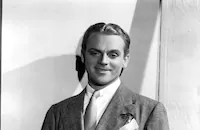
James Cagney

Dennis Morgan

Brenda Marshall

Alan Hale

George Tobias
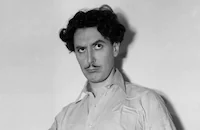
Reginald Gardiner
Air Marshal W. A. Bishop
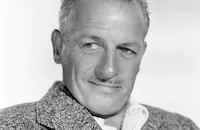
Reginald Denny
Russell Arms

Paul Cavanaugh

Clem Bevans

J. M. Kerrigan

J. Farrell Macdonald
Patrick O'moore
Morton Lowry
O. Cathcart-jones
Frederic Worlock
Roland Drew

Lucia Carroll

George Meeker
Benny Baker

Hardie Albright
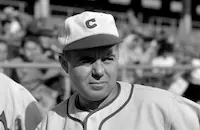
Ray Walker

Charles Halton

Louis Jean Heydt

Byron Barr
Michael Ames
Willie Fung
Carl Harbord
James Stevens
Bill Wilkerson
Frank Lackteen
Edward Mcnamara
Charles Smith

Emmett Vogan

Miles Mander

Larry Williams
Ellis Irving
Leslie Denison
Harry Lewis
Gavin Muir
Tony Hughes
Sergeant-major Spratt
Sergeant Major Dave Duncan
Pat Flaherty
Flying Officer Evans
Will Morgan
P. G. Abercrombie
Squadron Leader Greene

Charles Irwin
Barry Bernard

John Gallaudet
Sergeant Major Dave Duncan
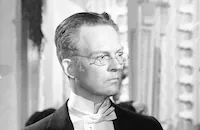
Don Dillaway
James Craven
John Kellogg
Ray Montgomery
George Ovey
Tom Dugan
Flying Officer Willis
Rafael Storm
Tony Marsh
Frank Wilcox
Walter Brooke
James Bush
Gerald Fielding
John Hartley
Herbert Gunn
Billy Wayne
George Offerman Jr.
Lane Allan
Sam Ault
Charles De Ravenne
Wing Commander Brian
Tom Hamilton
Joe Carr
Winifred Harris
Crew
George Amy
Harold Arlen
William Cagney
Squadron Leader O. Cathcart-jones
Frank Clarke
Wilfrid M. Cline
Elmer Dyer
Leo F. Forbstein
Roland Gillett
Byron Haskin
Frank Heath
Winton C. Hoch
Arthur T. Horman
Arthur T. Horman
Henri Jaffa
Natalie Kalmus
Richard Macaulay
Hugh Macmullan
Charles Marshall
Johnny Mercer
Sol Polito
Norman Reilly Raine
C. A. Riggs
Howard Shoup
Ted Smith
Max Steiner
Perc Westmore
Rex Wimpy

Photo Collections
Film Details
Technical Specs

Award Nominations
Best Art Direction
Best Cinematography
Articles
Captains of the Clouds
It sounds simple enough, but the truth is that Captains of the Clouds was an exceptionally challenging and difficult picture to make. Warner Bros. producer Hal Wallis wrote in his memoirs that the film "proved to be by far the most extensive and difficult venture in location work undertaken by Warners since the silent period." Most of the film was shot in and around Ottawa. With difficult wartime conditions, every hotel in the area was booked, and the crew had to be housed in an army camp - with army food. "They grumbled loud and long," recalled Wallis, "and twice we came close to a strike on the picture."
One day, Cagney suffered a concussion during a stunt in which his character gets knocked into the water by a propeller. Afterwards, Wallis and director Michael Curtiz were informed by their technical adviser that in such a situation "the propeller would normally have been turned off, and we had gone through this experience for nothing." Other problems included truck crashes, plane crashes, various on-set injuries and even lightning, which one afternoon struck a camera reloading shed "and burned it to the ground."
But the single hardest sequence to shoot was the elaborate "wings" ceremony, in which Air Marshal Billy Bishop's speech to the ranks on an airstrip is interrupted by Cagney's daredevil flying maneuvers. The scene took forever to nail down. Just getting the timing right was a major logistical challenge which required many attempts, but there were other problems: A sudden rainstorm. Engine trouble. Not enough sunlight. Malfunctioning cameras. The air marshal showing up late. After a week, wrote Wallis, "Rain, technical mishaps, and problems of every kind continued to dog us. We finally had to piece together fragments of footage from the many days of shooting in order to achieve a finished result. In the picture, however, it looks as if the whole sequence was shot at high noon in optimum sunny conditions."
Captains of the Clouds sprang from a magazine story called "Bush Pilots" which Canadian actor Raymond Massey had brought to Wallis's attention. Cagney wasn't crazy about the script but was persuaded to do the film by Jack Warner, who told him that he would be contributing to the war effort by accepting the role. Cagney relented, but only on the condition that his brother Bill be the line producer. In his memoirs, Cagney also remembered the film as one of his most grueling, but he added, "the one consolation for all the hard work was the kind of person you worked with. Alan Hale, that big, wonderful guy we all loved. Always in a good humor. Dennis Morgan, also a nice, nice guy. As the years wear on, I look back at those people and think about them. When they were around, I really enjoyed them, but now I realize that I could have enjoyed them more. The picture business has always been such a hysterical one and the demands on attention so great that one didn't have time to savor everything to the fullest - particularly your friends. That is one of my regrets."
Reviews were mixed, but critics raved over the sensational aerial scenes. Time said, "Although Cagney is much better than his thankless role, the real heroes of Captains are director Michael Curtiz and his five cameramen, who caught the matchless greens and browns of Canada's infinite north-country." The Motion Picture Academy thought so, too, nominating Sol Polito for a Best Cinematography Oscar®. (He lost to Fox's The Black Swan, shot by Leon Shamroy.) Ironically, Polito almost didn't make it to the set. As an Italian, he had serious trouble getting across the Canadian border since Canada was already at war with Italy. He also suffered a heart attack during production.
Captains of the Clouds was completed before Pearl Harbor and released in January 1942. In hindsight, the picture is an interesting precursor to the WWII combat film genre that would soon get underway. As film historian Jeanine Basinger has written, it begins as a typical Warner Bros. adventure, becomes a military training story with an almost documentary feel, and ends in combat. Furthermore, "it demonstrates that the skills [the pilots] need to live and work and fly the wilderness are those they'll already have honed for war." As they train, the "bush pilots become teachers and are seen flying in formation. This image, contrasted with the earlier flights we have seen of their rolls and dives, free and easy, over the Canadian wilderness, explains more about WWII movies than anything else in the film. From freedom to conformity. From the individual to the group."
Basinger also points out that Billy Bishop, who plays himself as the air marshal in the "wings" ceremony, was a famous Canadian flying ace who shot down 72 planes in WWI and was a maverick flyer of that war - just the type of flyer that Cagney and his friends start out as, and from which they must evolve to be more disciplined team players. According to Basinger, "showing Bishop endorsing the change was a powerful thing at the time" of the film's release.
Producer: Hal B. Wallis
Director: Michael Curtiz
Screenplay: Arthur T. Horman, Richard Macaulay, Norman Reilly Raine, Roland Gillett (also story)
Cinematography: Wilfred M. Cline, Sol Polito
Film Editing: George J. Amy
Art Direction: Ted Smith
Music: Harold Arlen, Max Steiner
Cast: James Cagney (Brian MacLean), Dennis Morgan (Johnny Dutton), Brenda Marshall (Emily Foster), Alan Hale (Tiny Murphy), George Tobias (Blimp Lebec), Reginald Gardiner (Scrounger Harris).
C-114m. Closed captioning.
by Jeremy Arnold

Captains of the Clouds
Captains of the Clouds - Aerial Thrills with James Cagney in CAPTAINS OF THE CLOUDS on DVD
Synopsis: Nervy bush pilot Brian MacLean (James Cagney) lies and double-deals to swipe business from his fellow independent fliers Tiny Murphy, Blimp Lebec and Scrounger (Alan Hale, George Tobias & Reginald Gardiner) but still considers himself a fair-minded guy. MacLean also undercuts fellow pilot Johnny Dutton (Dennis Morgan) in the girlfriend department, finding clever ways to monopolize the beautiful Emily Foster (Brenda Marshall). Knowing that Dutton and Foster plan to be married, MacLean sweeps Emily off her feet and takes her to Ottowa. But the war intercedes and all the fliers join the RCAF. Too old for the stress factors of combat flying, they're instead assigned as various kinds of instructors. Johnny is quickly promoted. Brian MacLean is too individualistic and set in his maverick ways, and washes out in disgrace after an irresponsible stunt backfires. Drunkeness and more tragedy divest Brian of his civil accreditation, but when the Canadians need pilots to ferry new bombers to England, MacLean sneaks in under a false identity. Johnny Dutton, now a ranking officer, spots him among the volunteer pilots.
Captains of the Clouds is an odd propaganda concoction that begins as a pro-United Kingdom advocacy piece and finishes as an ersatz combat film. The previous year's Dive Bomber promised combat and delivered a story about medical research. This colorful oddity finds a way to pit America's favorite Public Enemy against a nasty Messerschmitt in an aerial game of 'chicken.' Cagney plays a 'loveable' rat of a pilot, who sneers at his friends while stealing their business and their girlfriends. Once in the service, he can't follow orders but instead puts his faith in his flying instincts. When that philosophy gets him cashiered, he has only one more chance to prove himself. That's when our lone wolf's showboat heroism ends up saving the day.
Audiences always give James Cagney's characters every benefit of the doubt. And since the movie doesn't try for much in the way of character complexity, it works. Filled with the gumption of the great north woods, the reckless Brian zooms and twirls in his vintage wooden seaplane, hop scotching across the forests from one lakeside outpost to another while pulling dirty tricks on his pals.
Cagney's MacLane bad boy antics involve kissing, too. He tempts Brenda Marshall's Emily with a trip to the wide-open town of Ottowa (What happens in Ottowa stays in Ottowa?), which turns out to be a combo dirty trick and noble gesture. The script tags Emily as No Good for being interested in more than one guy. Then we see her and a third guy in the vicinity of a haystack, which in Production Code terms classifies her as a Jezebel, First Class. Brian marries Emily and then dumps her, just to keep her from "despoiling" her innocent fiancée Johnny Dutton. That makes Brian a very special kind of best friend, the sort that sleeps with your girlfriend (this isn't firmly established) for your own good. Sure enough, when we see Emily again, she's wearing a shocking red dress and drinking in a nightclub: Brian did the right thing. Captains of the Clouds' application of the classic Double Standard can only be described as bizarre.
In flight school and later training duty we discover that MacLane isn't cut out for military discipline, which expects recruits to show at least a passing interest in the rules. He mouths off to everyone and then wipes out a student pilot by 'instinctually' flying through his own bomb explosion. Sometimes The Force works, and sometimes it doesn't.
Brought low by his own hubris, Brian atones with (to quote Detour) a "Class-A Noble Sacrifice" that puts him nose-to-nose with a Messerschmitt. This land-based German fighter is somehow hundreds of miles West of England, even though French-based fighters couldn't even provide bomber cover when the Luftwaffe was hitting London. Dozens of unarmed Canadian planes are at this single plane's mercy until Brian disobeys orders and attempts a purposeful suicide collision. Rather primitive models zip and zoom, inter-cut with dynamite close-ups of Brian's wild-eyed grimace as he bears down on the German plane. It's a rather silly attempt to recreate Cagney's noble suicides from hits like Angels with Dirty Faces and The Roaring Twenties, and it works only because we love Jimmy the Gent and will follow him anywhere. This theme would later be thrown back in our faces at the end of White Heat, when Cagney figuratively transforms himself into a human atom bomb. We don't want to follow him quite that far.
Captains of the Clouds is similar to the early Tom Cruise films, in that Cruise portrays intensely unpleasant young men doing truly rotten things, yet maintains his hero status by star billing alone. Movies like A Few Good Men present Cruise's character as an utterly selfish and immature swine, and then resolve the conflict by having all the other characters get behind him anyway, because he's special. Top Gun's selfish flier has some similarities to this film's Brian. If Captains of the Clouds were to follow the Cruise pattern more closely, Brian MacLane would be awarded a medal for killing the trainee under his care.
Director Michael Curtiz uses the standard casting choices at Warners, teaming Cagney with the same four or five faces that show up in all of his movies. Alan Hale and George Tobias are Brian's best buddies and Reginald Gardiner is in as a Brit happy to return to England to fight the good fight. Dennis Morgan is the perfect second lead: handsome, relaxed and oblivious to the absurdity of the script.
Warners' DVD of Captains of the Clouds is an almost picture-perfect video representation of the Technicolor original. All of those handsome Canadian aerial scenes (filmed by Elmer Dyer and Winton Hoch) are breathtaking, and the full-color portraits of Brenda Marshal make her look dark and luscious. Aviation fans love the aircraft on view, including a rare shot of a British Hawker Hurricane that stands in for a German fighter.
The Night at the Movies collection of short subjects include a Canada-themed hunting featurette and two cartoons, one of them with Elmer Fudd in a Mountie uniform. Trailers on view are for the main feature and the 1942 Bette Davis picture In This Our Life.
For more information about Captains of the Clouds, visit Warner Video To order Captains of the Clouds, go to TCM Shopping.
by Glenn Erickson
Captains of the Clouds - Aerial Thrills with James Cagney in CAPTAINS OF THE CLOUDS on DVD
Quotes
Trivia
The training facility depicted in the movie, "Uplands Air Base," actually exists near Ottawa, Canada. After WWII, it served as a jet squadron training base and later as a military helicopter transport facility. In 1995, the Canadian government shut down the base and it now serves as a reception area for VIPs.
James Cagney's first film in Technicolor.
Notes
The film begins with the following written foreword: "This picture is respectfully dedicated to the Royal Canadian Air Force...With sincere appreciation of their cooperation and admiration for their abilities and courage...To those student pilots in this picture who are now in actual combat overseas...And most particularly is it dedicated to the many in the service who have trailed the shadows of their wings over the vastnesses of Canada from the forty-ninth parallel to the Arctic Circle...The bush pilots." The film ends with the following written acknowledgment: "Sincere appreciation is expressed to Major the Honorable C. G. Power P. C., M. C., Minister of National Defence for Air (Canada) and to Air Marshal L. S. Breadner D.S.C., Chief of the Air Staff, Royal Canadian Air Force, without whose authority and generous co-operation this picture would not have been brought to its splendid conclusion. We also wish to express our thanks to Air Marshal Bishop, V. C. and the other officers and men of the RCAF who in the making of the picture, are portrayed in the actual performance of their regular duties."
The film's working title was Shadows of Their Wings. News items in Hollywood Reporter add the following information about the production: The idea for the film originated with Jack L. Warner and Hal B. Wallis. William Keighley was originally set to direct, but Michael Curtiz stepped in after Keighley was assigned to Warner Bros.' Manpower (see below). George Brent was considered for a role. The scenes featuring the life of the bush pilots were filmed in Ottawa beginning July 11, 1941 and were aided by the Canadian government. A radio version of the film, starring James Cagney, was broadcast over the NBC Red network on 2 February 1942.
Press material included in the file on the film at the AMPAS Library adds the following information: Captains of the Clouds was the first Hollywood picture to be filmed entirely on location in Canada. The film includes scenes of an actual graduating ceremony of the Canadian Royal Air Force, with World War I veteran Air Marshal W. A. "Billy" Bishop in attendance. Bishop also attended the New York opening along with 200 RCAF cadets and other officials. The film opened simultaneously in New York, London, Ottawa, Cairo, Melbourne, Toronto, Winnipeg and Vancouver, and copies of the film were transported to these cities by the RCAF. Sol Polito was nominated for an Academy Award for Best Photography (Color).















